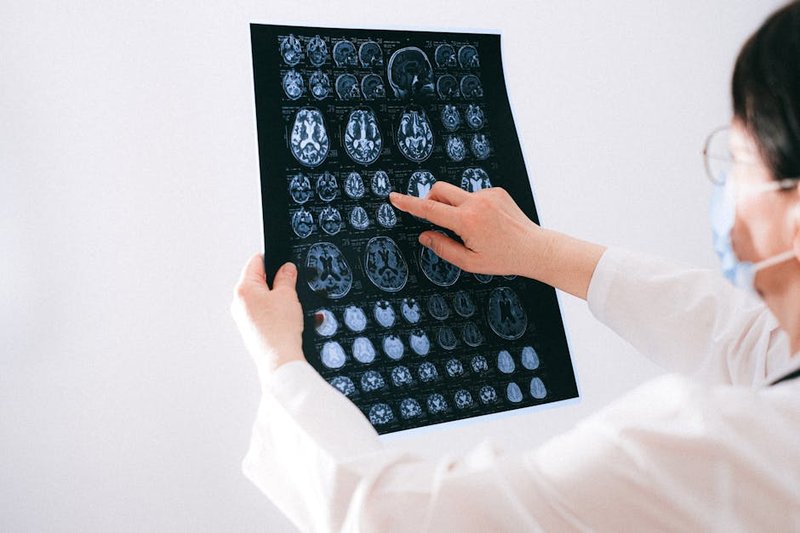In my fifteen years as a neuroscientist, I’ve scanned more brains than a TSA agent has scanned suspicious water bottles. And let me tell you, the practical applications of this technology have taken some fascinating turns. While my colleagues are busy mapping neural pathways to cure diseases, corporate America has found far more lucrative uses for our million-dollar machines.
Just last week, a major cereal company paid our lab $500,000 to determine which cartoon mascot triggered the most dopamine in children’s brains. Apparently, the purple monster with three eyes outperformed the dancing rabbit by 17%. Expect a rebranding campaign by summer.
Your Brain on Sleep Deprivation (Or: Why Creatine Is the New Coffee)
According to groundbreaking research that surely wasn’t funded by supplement companies, creatine may offer a significant brain boost for sleep-deprived workers. Yes, the same powder bodybuilders dump into their shakes might save corporate America billions in productivity losses caused by mandatory 3 AM emails.
The study, published somewhere between a legitimate journal and a gym advertisement, showed that sleep-deprived subjects given creatine performed 12% better on cognitive tests than their placebo-receiving counterparts. The control group, who actually got a full night’s sleep, still outperformed everyone by 40%, but that finding didn’t make it to the press release.
Next up: a study on whether protein powder can replace therapy.

Marathon Runners: The Walking Brain Experiments We Deserve
Have you ever wondered what happens to a marathon runner’s brain after 26.2 miles of voluntary torture? Of course you haven’t, because you’re a reasonable person. But neuroscientists have, and the results are both fascinating and completely unsurprising.
It turns out that running a marathon temporarily reduces brain myelin—the protective coating around neural pathways. The body, desperately searching for energy after depleting all reasonable reserves, begins to cannibalize its own brain insulation. This is what scientists call “hitting the wall” and what I call “your brain literally eating itself.”
But don’t worry, marathon enthusiasts! The myelin recovers eventually, usually around the same time you’re telling everyone at the office about your race time and showing them your medal during lunch breaks.
Male vs. Female Brains: A Scientific Journey into the Obvious
Is there really a difference between male and female brains? This question has puzzled scientists for centuries, primarily because they needed research grants and controversial topics sell well to funding committees.
The emerging science reveals what most of us suspected: there are some differences, they’re not as big as stereotypes suggest, and individual variation makes broad generalizations nearly meaningless. But that doesn’t stop us from spending millions on studies confirming that, statistically speaking, female subjects are slightly better at remembering where they put their keys.
For just $10,000, our lab can scan your brain and tell you exactly how male or female it is, on a completely arbitrary scale we invented last Tuesday. Results delivered via gender reveal party with either blue or pink brain-shaped cake.
Brain – The Presidential Cancer Commission: Data Without Context
During his recent joint address to Congress, President Trump claimed childhood cancer rates have increased 40% since 1975. While the actual data shows closer to a 33% increase, the more interesting story lies in what wasn’t mentioned: mortality rates for childhood cancer have decreased by 24% in just the last two decades.
This stunning improvement can be attributed to the same advances in medical technology that allowed us to detect more cancers in the first place. Better imaging, improved genetic testing, and more sophisticated screening methods mean we’re finding cancers earlier and in children who might have gone undiagnosed in previous decades.
But “We’re saving more children than ever” doesn’t have the same urgency as “Cancer rates are skyrocketing,” which explains why I wasn’t invited to join the presidential commission despite my brilliant proposal to scan the brains of political speechwriters.
Brain – Potatoes Not Prozac: The Carb-Based Approach to Mental Health
In what might be the most heartening news for carb-lovers everywhere, Dr. Kathleen DesMaisons suggests in her book “Potatoes Not Prozac” that simple dietary changes might help those with sugar sensitivity. As someone who has conducted numerous brain scans of subjects before and after consuming various foods, I can confirm that potatoes do indeed light up the pleasure centers of the brain.
However, so does actual Prozac, along with therapy and other evidence-based treatments. The potato lobby, unfortunately, has significantly less funding for brain scan studies than pharmaceutical companies, leading to an unfair advantage in the scientific literature.
The next time you’re feeling down, try a baked potato. If that doesn’t work, please consult an actual mental health professional rather than your pantry. Although, in fairness to Dr. DesMaisons, the pantry is usually more affordable and has shorter wait times.
Remember, brain technology has come a long way, but it still can’t scan for common sense—that part we have to provide ourselves, preferably before writing the grant proposals.



